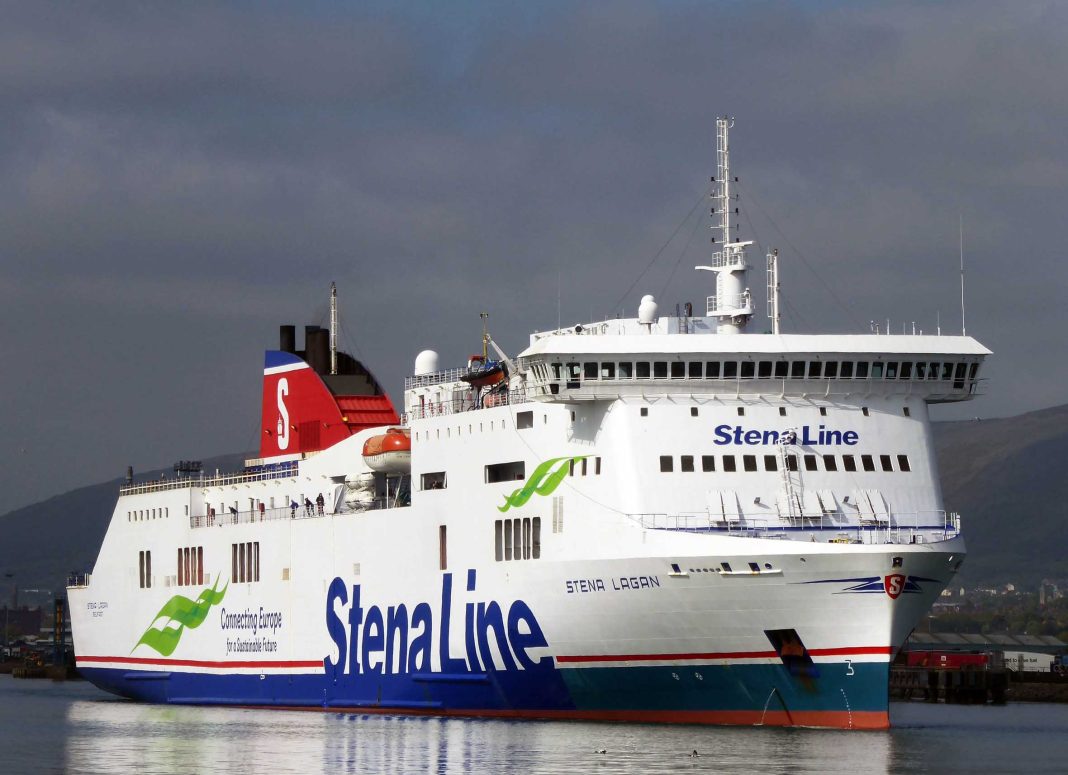Stena Line announced on 14 October 2020 an expansion and strengthening of their operations across the Baltic Sea region.
Next year the current vessels on the Nynäshamn-Ventspils route will be replaced with two modern and lengthened RoPax ferries Stena Lagan and Stena Mersey, which will add further 30 per cent freight capacity. The new ferries will also offer an attractive alternative way to travel on the Baltic Sea.
Stena line is one of the world’s leading ferry companies with 18 ferry routes in Europe. Three of them are operating across the Baltic Sea.
Since Stena Line acquired the ferry route between Nynäshamn in Sweden and Ventspils in Latvia in 2012 it has more than doubled its operations from one vessel and 10 departures per week, to the current fixed timetable, which has two vessels and 24 departures per week.
Stena Line has announced an expansion and strengthening of their position and offer to both freight and travel customers in the Baltic Sea with the deployment of the two modern and lengthened RoPax-vessels Stena Lagan and Stena Mersey on the Nynäshamn-Ventspils route during 2021.
This will increase freight capacity by almost a third, and improve the onboard experience, making Stena Line an attractive choice of the travel market on the Baltic Sea.
“We have seen an increase in demand from our customers across the wider Baltic Sea region. We are now strengthening our position and customer offer further with new modern vessels and more capacity” says Niclas Mårtensson, CEO Stena Line.
Lengthened vessels from the Irish Sea
The two ro-pax vessels Stena Lagan and Stena Mersey were built at the Italian shipyard Visentini in 2005 and have been operating on Stena Line’s Irish Sea route between Belfast and Liverpool for the last ten years.
To create a more standardised and modern flexible fleet the two vessels will be upgraded, modified and lengthened before returning to Stena Line to operate on the Nynäshamn-Ventspils route from 2021. The ground-breaking conversion is conducted by Stena RoRo and Sedef Shipyard in Turkey.
The two vessels will be lengthened by a 36m mid-section and after the conversion they will be 222m long and have a capacity of 200 cabins, 970 passengers and 2,875 freight lane meters plus the additional car deck; adding another 30 per cent freight capacity on the route.
To increase the loading efficiency they will also be modified with drive through capabilities on two levels. The vessels will also be fitted with hybrid scrubbers.
The interior will be updated to Stena Line’s familiar Scandinavian, light and spacious design. It will include new cabin categories, a new shop, lounge areas with reclining chairs as well as a sundeck. A separate dining offer for the freight drivers will also be added to the route with the new vessels.
The first of the two vessels, Stena Lagan is currently at the Sedef Shipyard in Tuzla, Turkey, where it is planned to start operating on the Nynäshamn-Ventspils route in the beginning of 2021.
Stena Mersey is still operating on the Belfast-Liverpool route and will be replaced by the third E-Flexer Stena Embla in January 2021 before leaving for her lengthening at the Sedef Shipyard. She is expected to return to service on her new route later during the year.
”We continue to build on our successful RoPax concept, combining freight and passengers. These two new vessels will be a fantastic addition to the fleet and for our customers. I am looking forward to welcoming them onboard”, said Johan Edelman, Trade Director Baltic Sea North at Stena Line since 1 October.
About the route
The crossing time of 8.5 hours is the fastest sea-connection between Sweden and the Baltic countries. The route is a popular choice for both transport and tourism and is a vital supply line to both the manufacturing and construction industry in Sweden.
About the vessels
Name: Stena Lagan & Stena Mersey
Built: 2005 at the Italian shipyard Cantiere Navale Visentini
Modified/Lenghtened: by Stena RoRo during 2020/2021 at the Sedef Shipbuilding in Tuzla, Turkey.
Length: 222 metres
Passenger capacity: 970
Freight capacity: 2,875 lane metres + car deck
Cabin capacity: 200


